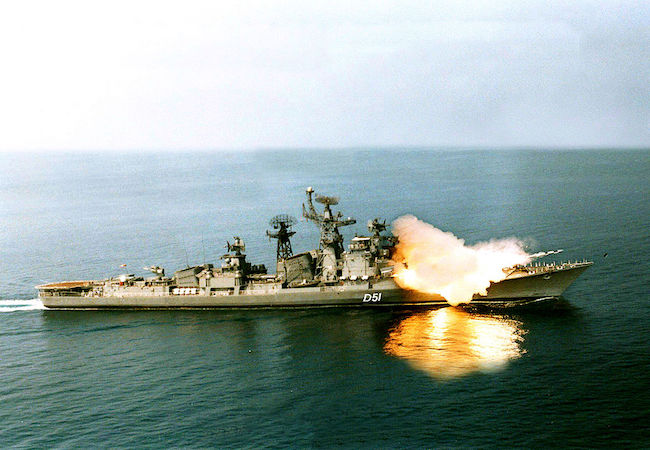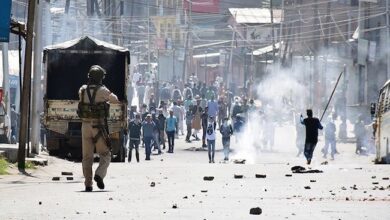India’s war rhetoric and emergent dynamics of false flag operations against Pakistan

By Haris Bilal Malik
Since the year 2019, the South Asian region has become one of the most crucial factors that have impacted the prevalent international security environment. This is primarily because India considers both of its immediate neighbors Pakistan and China as its adversaries that can challenge the Indian great power aspirations at the military front. Since then, there has been a continuous intensification of Indian adventurism and war rhetoric in the form of border skirmishes with both of its neighbors across the Line of Control (LOC) and Line of Actual Control (LAC). In this regard, the Pulwama-Balakot crisis of 2019 and the Ladakh-Galwan crisis of 2020, which are now part of history are quite significant. India met a very befitting response during these crises and they emerged as an embarrassment for India at the military and diplomatic levels. Furthermore, many believe that these crises were the result of India’s false flag operations with some predetermined strategic objectives. Most significantly, the Pulwama attack of February 2019 which resulted in a short-lived military engagement between India and Pakistan is believed to be a controversial false flag operation. India’s ever-increasing war rhetoric and the notions of false flag operation against Pakistan would further increase the fears of war and escalation in South Asia.
Over the years, India has been involved in many false flag operations against Pakistan. These significantly include; the Mumbai attacks of 2008, the Pathankot Air Base attack of 2016 and the Uri military base attack of 2016. India had blamed Pakistan for these attacks without any undeniable evidence. These false flag operations are in-line with the Indian hybrid agenda that over the years has evolved to blame Pakistan for sponsoring terrorism in the region. The timings of some of these operations have remained quite significant since the main aim was to manipulate the domestic political environment. Likewise, the attention from the core issue of Kashmir between India and Pakistan was also diverted. Especially, the Pulwama attack is a candid example of achieving political goals in the elections. This is further evident from the fact that the whole electoral campaign of the BJP led by Mr. Modi was based on anti-Pakistan war rhetoric and negative nuclear signaling. In the same vein, the timing of this operation that was two months right just before the elections had made it one of the most contentious operations to date. As expected, the whole war rhetoric met the expectations of the Indian political and strategic elite and the BJP was able to secure a landslide victory in the elections.
Given the current domestic environment in India, Pakistan believes that India might again carry out another false flag operation to fulfill its politico-strategic objectives. The prospects of false flag operation are considerably significant since the controversial legislation and other political moves of the Indian government have compelled the Muslim and Sikh minorities, and farmers to come on roads. Along with this, the growing Indian atrocities in Occupied Kashmir and the August 2019 revocation have resulted in worldwide criticism against the extremist policies of Mr. Modi’s government. Quite recently, Pakistan’s Prime Minister Imran Khan has warned that India is deliberately looking for an opportunity to wage another false flag operation and blame Pakistan. He further asserted that India would be given a befitting response at all levels of threats; refrain from making any such mistake. The assertion was quite significant since a United Nations Military Observer Group in India and Pakistan (UNMOGIP)’s vehicle that was on a monitoring mission near Rawalakot area of Azad Jammu and Kashmir (AJK) came under attack by the Indian forces. This appears to be a deliberate Indian attempt to defame Pakistan at the international level.
Furthermore, the Indian desire to carry out a false flag operation is also intended to divert the attention of the international community from the genocide it has been carrying out in the occupied Kashmir. Just two days before the Prime Minister’s warning, on December 18, 2020 Pakistan’s Foreign Minister has also revealed that India is planning to carry out a strike to divert attention from the internal issues. He further stated that India is planning a false flag operation and Pakistan has very credible intelligence information in this regard. It is quite noteworthy that the current Indian government is facing various challenges on the domestic front. These include; economic challenges, insurgencies, protests, and religious extremism. In this regard, the reports of; Human Rights Watch, the US Commission on Religious Freedom, and the most recent EU DisInfo Lab all have added to the frustration of the Indian government. In such circumstances, the chances of a false flag operation by India are very less likely to be ruled out.
Hence at the present, it appears that India under the rule of the current extremist government has been intentionally creating war hysteria against Pakistan. In pursuit of this, it has forgotten that any escalation beyond a certain point could result in an all-out war with a prospective fear of the first-ever nuclear exchange between the two countries. Given the Indian war rhetoric against Pakistan and its planning of a false flag operation, the significance of the Kashmir issuer as a ‘nuclear flashpoint’ has been considerably increased. In this regard, Pakistan’s appropriate diplomatic stance of highlighting India’s deliberate attempt to play with the peace and stability in the region has turned out to be a success. This strategy of exposing the anti-Pakistan war rhetoric and prospects of false flag operation has served as a plausible way out. Pakistan needs to maintain a strong manifestation of its politico-diplomatic resort that would deter India from taking any misadventure in the years to come.
Haris Bilal Malik currently works as a Research Associate at the Strategic Vision Institute (SVI) in Islamabad, Pakistan.




